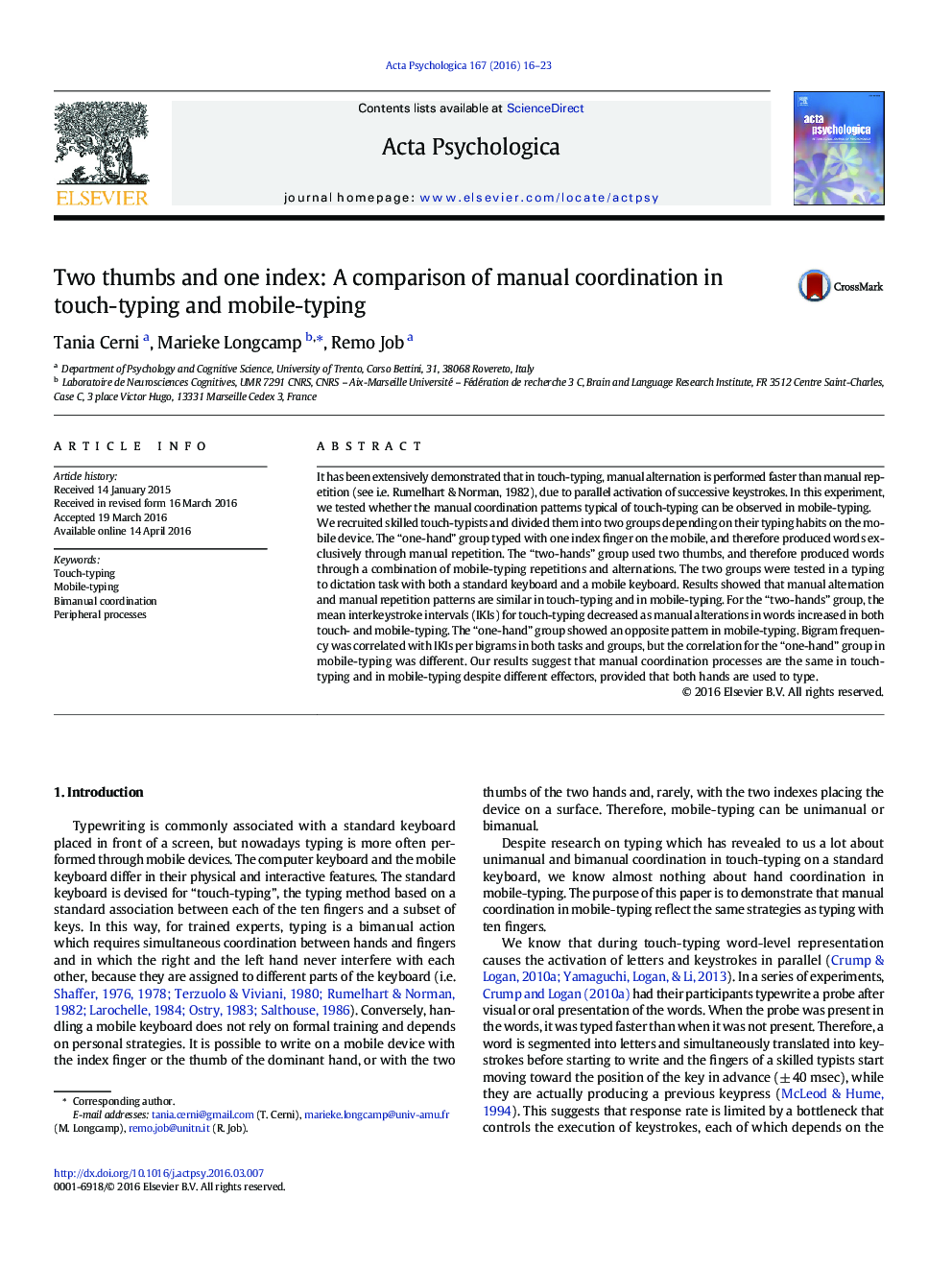| Article ID | Journal | Published Year | Pages | File Type |
|---|---|---|---|---|
| 919634 | Acta Psychologica | 2016 | 8 Pages |
•For expert typists, manual alternation is performed faster than manual repetition.•We observed a similar pattern in mobile typing with two thumbs.•Bigram frequency has a similar effect on IKIs for touch typing and mobile typing.•In mobile typing with one hand, index movements are activated sequentially.•Bigram frequency does not affect IKIs of transition bigrams in one-hand mobile typing.
It has been extensively demonstrated that in touch-typing, manual alternation is performed faster than manual repetition (see i.e. Rumelhart & Norman, 1982), due to parallel activation of successive keystrokes. In this experiment, we tested whether the manual coordination patterns typical of touch-typing can be observed in mobile-typing.We recruited skilled touch-typists and divided them into two groups depending on their typing habits on the mobile device. The “one-hand” group typed with one index finger on the mobile, and therefore produced words exclusively through manual repetition. The “two-hands” group used two thumbs, and therefore produced words through a combination of mobile-typing repetitions and alternations. The two groups were tested in a typing to dictation task with both a standard keyboard and a mobile keyboard. Results showed that manual alternation and manual repetition patterns are similar in touch-typing and in mobile-typing. For the “two-hands” group, the mean interkeystroke intervals (IKIs) for touch-typing decreased as manual alterations in words increased in both touch- and mobile-typing. The “one-hand” group showed an opposite pattern in mobile-typing. Bigram frequency was correlated with IKIs per bigrams in both tasks and groups, but the correlation for the “one-hand” group in mobile-typing was different. Our results suggest that manual coordination processes are the same in touch-typing and in mobile-typing despite different effectors, provided that both hands are used to type.
